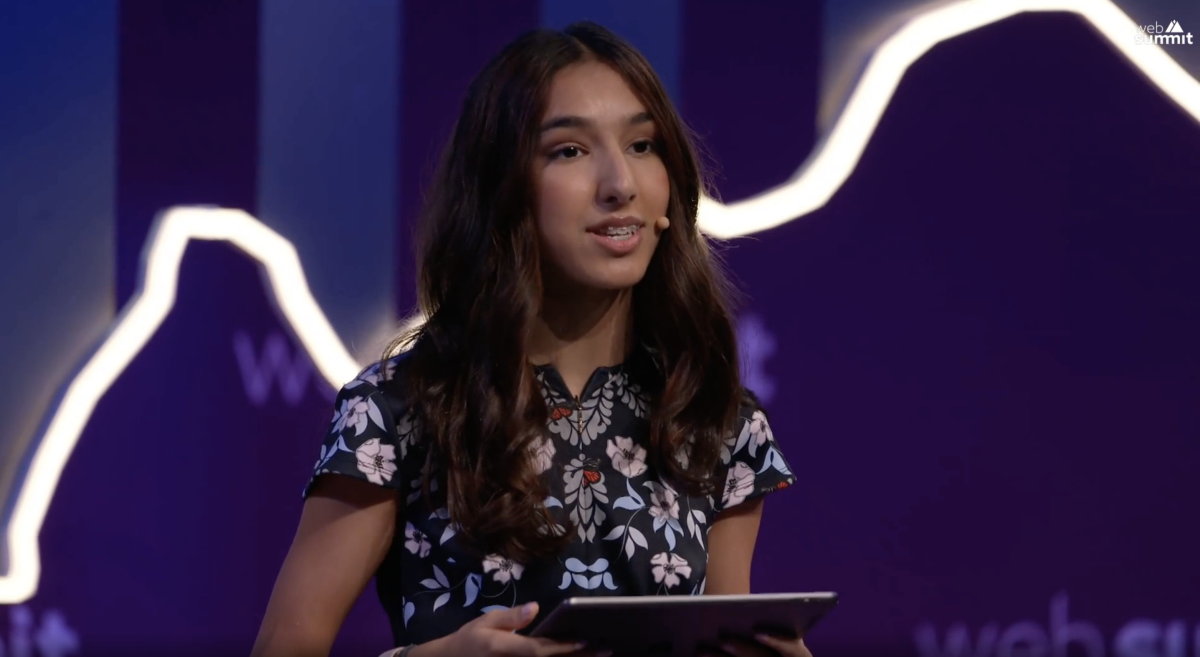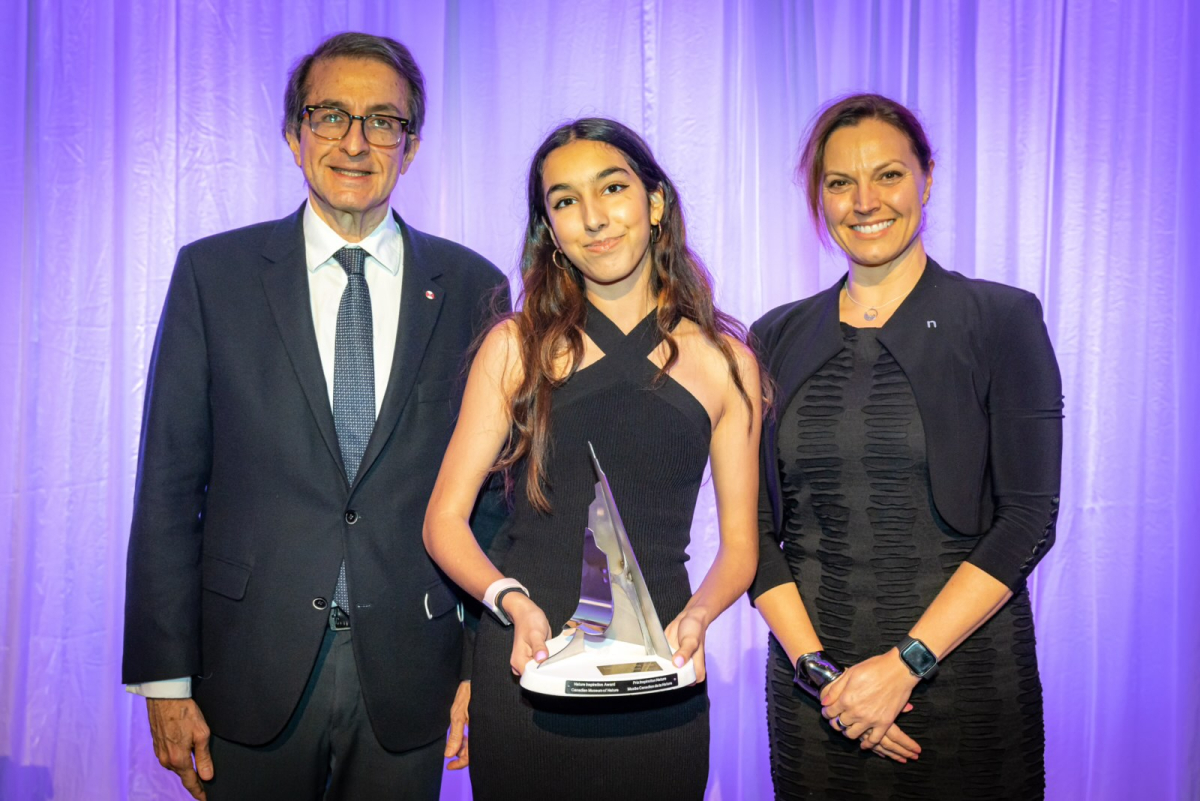Support strong Canadian climate journalism for 2025
These in-their-own-words pieces are told to Patricia Lane and co-edited with input from the interviewee for the purpose of brevity.
Naila Moloo spends her high school vacations inventing new kinds of solar panels and bioplastics.
This 16-year-old has published two novels and co-hosts a podcast introducing other teens to the world of STEM (science, technology, engineering and mathematics). I chatted with her at her home in Ottawa.

Tell us about your research.
I am working with a researcher at the Toronto Metropolitan University attempting to use very thin glass and other innovative materials to explore the feasibility of designing solar panels that attach to many more surfaces than just roofs. I have a vision that our smartphones and windows draw power from the sun.
At Carleton University, I am exploring the potential of creating bioplastics from duckweed (Lemna minor). Using corn and other food crops for bioplastics is well understood but necessitates the use of arable land, a diminishing resource as the climate changes. Other researchers are exploring bioplastic production from algae, but duckweed is often more readily available.
How did you get involved in this work?
When I was eight years old, I was very affected by images of the suffering of wildlife in the wake of a major oil spill. Since I wanted to be a writer, I figured I would eventually write about environmental degradation.
I got my first contract to write a novel when I was 13 for the magical realist Chronicles of Illusions: The Blue Wild (Pegasus 2021). I have since self-published a sequel, Chronicles of Illusions: Bound by Dreams and a short story Frost published in the anthology Speaking Up For Each Other (Lune Spark Books 2018). But when I was eight years old, I was very affected by images of wildlife after a major oil spill and in Grade 9, I decided I wanted to work on alternatives to the fossil fuels that had caused such suffering.
I was accepted into The Knowledge Society, a program designed to introduce teenagers curious about technology to science, technology, engineering and math, help them discover where their interests lie and design and implement a project. Both these projects come out of that experience.

What makes it hard?
I have had to think carefully about the concept of satisfaction and success. Innovation produces failure more often than success. But if the potential success is significant, one keeps going.
Last summer, for example, I spent tedious hours searching for a material that would dissolve, but not in water because water would damage the other components I wanted to use to build a new kind of solar panel. I failed to find that material. As a result, I have had to go back to the beginning and rethink my initial design. The researchers with whom I work have taught me to see the journey itself as the success and I have grown to love the process of research.
What keeps you going?
Climate change is already so harmful and will bring so much more suffering. It will help me when I am old to know that I played a small part in decreasing the pain and improving the world even a little. I think of the potential impact of having widely available clean energy and stopping does not even occur to me.
I am surrounded by support. Researchers have bent over backwards to give me advice, mentoring and lab time. Administrators have worked to overcome the barriers that exist and allow high school students to use university resources. When I ask for help, so often people find a way to lift me up even if they themselves cannot provide it.

How do your family and life so far affect where you are in your journey?
My parents are very supportive as long as the things I am interested in will make a positive impact and bring me satisfaction. My dad is a surgeon who has just taken on a new position as director of planetary health at his hospital.
What do you see if we get this right?
Our planet might be healthy enough to sustain us.
What advice do you have for other young people?
Find the overlap between what you like to do and what problem interests you. If it is climate change, whether you are interested in technology, the arts, advocacy, telling stories or psychology, there is a place for you.
How about for older readers?
If you are not concerned and active in contending with climate change, you should be. Find a way to involve young people and support them with job-shadowing opportunities, internships, conference invitations and panels or seats at the table.







Comments